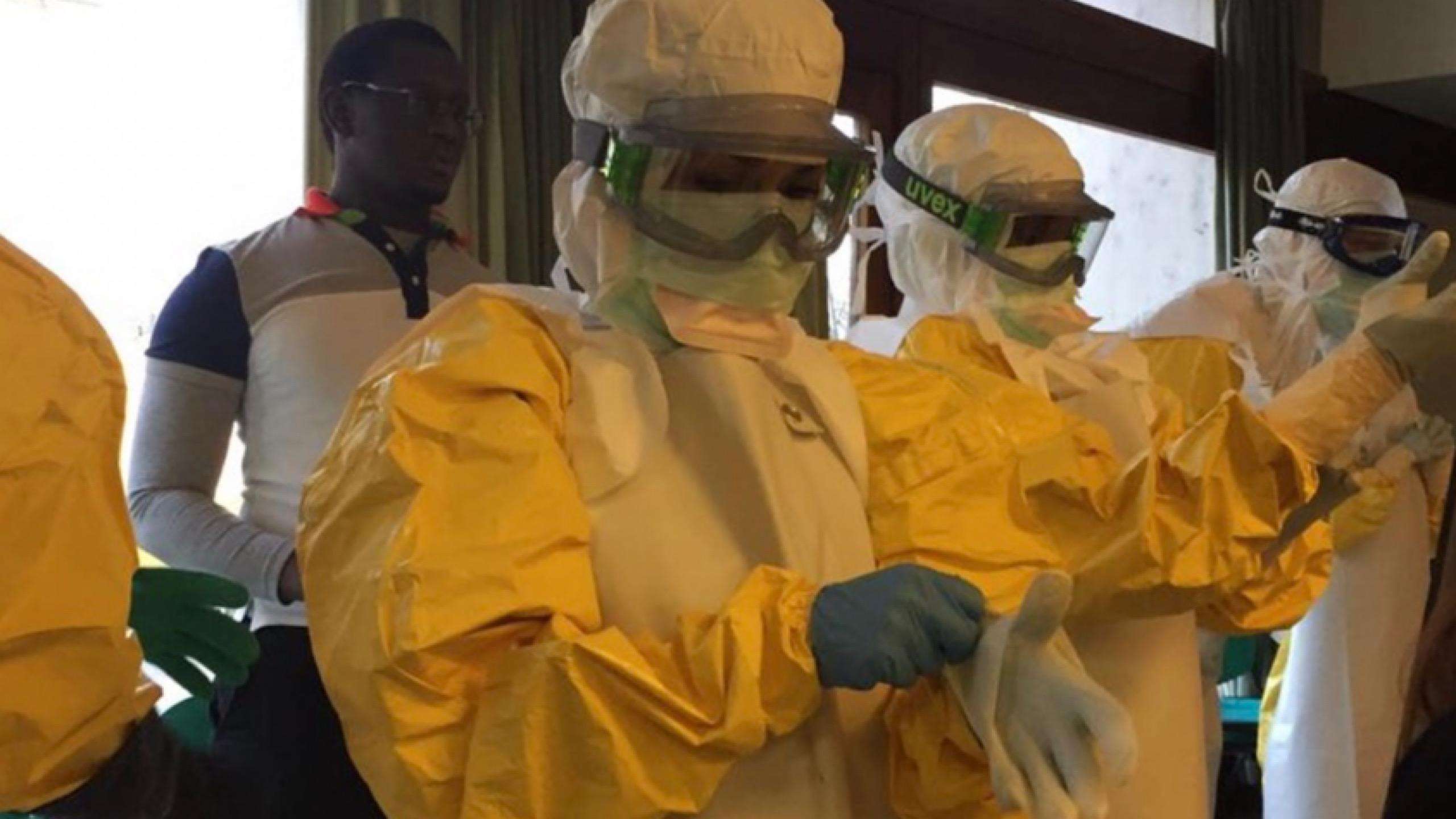Valérie Gruhn is an emergency trauma nurse and writer who has worked with Doctors Without Borders/Médecins Sans Frontières (MSF) in Kenya, Chad, Iraq, and, most recently, in Democratic Republic of Congo (DRC). This year, she found herself on the front lines of a pandemic in New York. In this essay, Gruhn recalls the haunting parallels between her work as an MSF nurse caring for people diagnosed with Ebola in DRC and as a first responder caring for people affected by COVID-19 in the United States. She wrote this piece in April, as New York became the epicenter of the coronavirus pandemic.
I start my shift by donning a yellow gown—first by putting my thumbs through holes that are made so the gown does not expose my wrists. Next comes the N-95 mask. I carefully wrap the loose strings around my head in hopes of preserving the seal that I need for the mask to work properly. Some of us keep the mask on for 12 hours, others only use it for those procedures that place us most at risk. I wash my hands again before pressing down on the mask to mold it to my face. A surgical mask then covers the N-95; I need to protect this scarce item in order to reuse it again later. Now come the goggles. I carefully place them so that they go over the top part of my mask. “We did this with Ebola, this should work!” I think to myself as I slip on my gloves.
I slide a glass door and close it behind me as I walk into a negative pressurized room to see a man in his 50s sickened by COVID-19. My patient is desaturating, which means his oxygen levels are dropping. He looks relieved to have company. “Do you think I will die?” he asks, anxiously. “I am scared.” I try to reassure him: “Don’t be scared. I am here with you. You’re not alone.” We chat a bit while he attempts to catch his breath in between.
As I care for him, flashbacks resurface of my time working to contain the Ebola epidemic in DRC—which is still ongoing. I was there just one year ago as an MSF aid worker, and no other assignment has had such a strong impact on me. Until now. So much of what is going on right here in the US reminds me of that experience far away.
If I said that I was not afraid the first time I walked into the room of an Ebola patient, I would be lying. My heart raced initially. I turned people over when they were uncomfortable from lying in the same position for too long, and stayed by them as they took their last breath. However, I also knew that we health workers were protected and had been trained for this. We knew that our personal protective equipment (PPE) kept us safe. My colleagues and I worked in two-person teams to watch over each other and alert our partner if any skin got exposed.
Here in New York, I prepare the room and my patient for intubation. His body cannot compensate any longer. Along with an anesthesiologist, a respiratory therapist, and a team of intensive care physicians, we get him intubated and move him to the intensive care unit. I hope he will be okay, but I will never know.
I remove my N-95 in order to switch to a surgical mask, which allows me to breathe with more ease when I am not caring for a patient. I stare at the N-95, knowing it may now be contaminated and that I will have to reuse it later anyway.
Down the hall arrives one of our own: a doctor, who is also our colleague. She looks pale and gray, and is very short of breath. I hear her crying, “I don’t want to die! I don’t want to die.” Which one of us will be next? We all see that this disease has no limits. We see that it has no borders. It consumes all our resources and strikes down those who care for people who have the disease. It affects people of every class and age, yet it disproportionately harms some ethnic minorities and marginalized groups.
COVID-19 continues to expose many of the problems that we have turned a blind eye to, not only in wealthy countries like the US but also in countries with much weaker health systems throughout the world. People in countries like DRC and Liberia, which get ravaged by epidemics every year, do not seem so different from us after all. That is because they never were.






